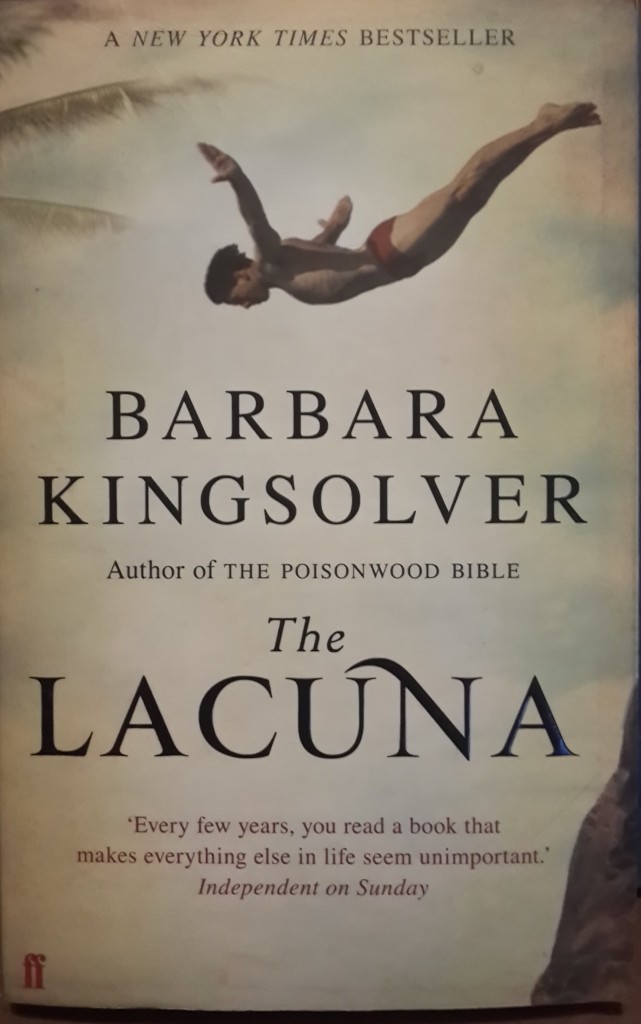I fell in love with Barbara Kingsolver’s writing when I devoured what is probably her most famous novel, The Poisonwood Bible. It’s arguably one of the best books I’ve enjoyed, and none of the other works of hers that I have read (all except one of her novels) have ever disappointed. The Lacuna was certainly no different.
I actually received The Lacuna as a gift quite some time ago, but what with the current state of the To Be Read pile, I only got to it late last year. I also procrastinated a little, not because I didn’t think it would be wonderful, but because one thing Barbara Kingsolver is not is a light read, and I wanted to be able to give it the attention it deserved. Needless to say, once I picked it up, I was sorry I hadn’t done so sooner – it’s quite simply beautiful. Then I procrastinated some more before writing this review because it’s quite hard to do such a lovely book justice.
The Lacuna is set in Mexico and the United States from 1929 until 1959, and follows the complex life of Harrison Shepherd, a young man with a passion for writing and an unfulfilled desire to exist unnoticed. His early life is fraught with disappointing relationships, with his parents and with those he falls in love with, and his childhood is certainly not without trauma, some of which the author only hints at. He finds himself working for notorious artists Frida Kahlo and Diego Rivera, and through his relationship with them, ultimately meets Lev Trotsky while the Bolshevik leader is in exile, becoming unwittingly caught up in a revolution. While there are many historical references, and the book is impeccably researched, it is still a work of fiction. I’m a major fan of historical novels, so these references were a big draw card for me, but make no mistake, even if you’re not a history buff, this is no dry text. The real story is the relationships, and the inner thoughts of the main characters, as is usually the case with Kingsolver’s work. She has an incredible knack for making you think about weighty issues such as identity, individuality, politics and so on, without detracting from the pure beauty of the story being told. Interestingly, The Lacuna is the only one of Kingsolver’s novels thus far that does not feature a female protagonist, but Harrison is ably supported by a number of interesting feminine voices throughout the book.
It’s not a quick read, at 670 pages, and it is occasionally disturbing. But it is exquisite and at times while reading it, I felt like I was only able to take small sips of Kingsolver’s delicious words, or it would just be too overwhelming. Set aside some time to really relish this masterpiece, you definitely won’t regret it.

Leave a Reply